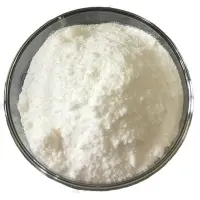PNAS: Revealing the molecular mechanisms of specific lymphocyte populations that promote the occurrence of autoimmune diseases
-
Last Update: 2020-06-17
-
Source: Internet
-
Author: User
Search more information of high quality chemicals, good prices and reliable suppliers, visit
www.echemi.com
, June 10, 2020 /PRNewswire/ -- In a study published in the international journal
proceedings of the National Academy of Sciences
, scientists from institutions such as the Caroline Institute in Sweden have studied how special lymphocyte populations can promote the
development ofautoimmunediseases by giving up their regulatory role sedatives in the immune systemPhoto Source: Karolinska Institute
Autoimmunediseases are the result of an imbalance in the body's immune system that induces the destruction and interference of a variety of mechanisms that normally inhibit the occurrence of the disease, and now researchers have found that cell groups that normally block autoimmune immunity may convert their functions into promoting disease, perhaps due to inflammation and a combination of specific stimulation of glycolipids; The lymphocyte population of T cells normally inhibits the secretion of pathogenic antibodies by their reactive B cells, but now it loses that ability to play a key role in promoting B cells
;when using the glycolipid agonist alpha-semilactose ceramide (aGalCer) and inflammatory cytokine IL-18 to stimulate iNKT cells, the researchers identified a special switch from iNKT cells, iNKT cells exhibiting lower levels of the transcription factor GATA3 and the increase in transcription factor BCL6 levels It also increases the level of expression of CXCR5 and PD-1 (a typical bubble-assisted T-cell phenotype) on the cell surface, which promotes the reaction of cells in the birth center B cells, leading to the conversion of the immunoglobulin (Ig) category, and the researchers also observed an increase in self-reactive, anti-DNA antibody levels belonging to the IgG2b, IgG3 and IgE subcategories, the researchers used a special reporting system, in which B-cells that undergo a biocentritis reaction raise the human-specific marker, and they explain that combining glycolipids with inflammatory stimulation of iNKT cells in the body may allow more B-cells to experience GC reactions; The researchers found that this interaction may disappear during functional transformation, so to verify whether this switch in iNKT cells is sufficient to drive autoimmune development, the researchers studied collagen-induced arthritis models, combining aGalCer and IL-18 to administer drugs that may lead to the occurrence of earlyrheumatoid arthritisand increased activation of immune cellsthe results of this study reveal the mechanism by which autoimmune diseases occur and how the immune system's safety mechanisms are interfered with, and the findings could help researchers develop new strategies to restore the balance of the body's immune system and treat a variety of autoimmune diseases(BioValley Bioon.com)original origins:Saikiran KSedimbi, Thomas H?ggl?f, Manasa GGarimella, et al.
Combined proiccy cytokine and cognate activation of invariant natural killer T cells s lochs anti-DNA antibody,Proceedings of the National Academy of Sciences(2020)doi: 10.1073/pnas.1920463117
This article is an English version of an article which is originally in the Chinese language on echemi.com and is provided for information purposes only.
This website makes no representation or warranty of any kind, either expressed or implied, as to the accuracy, completeness ownership or reliability of
the article or any translations thereof. If you have any concerns or complaints relating to the article, please send an email, providing a detailed
description of the concern or complaint, to
service@echemi.com. A staff member will contact you within 5 working days. Once verified, infringing content
will be removed immediately.







